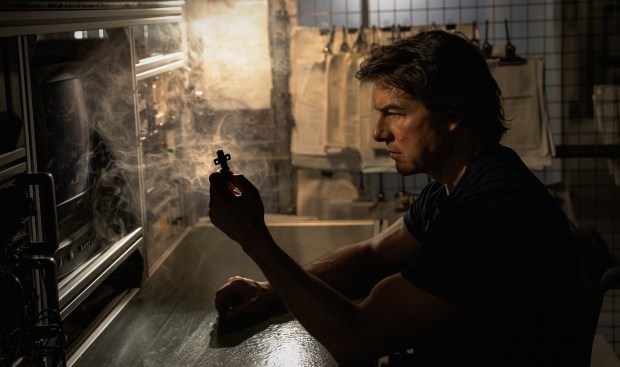It was the third day of spring training at Camelback Ranch in Glendale, Ariz., and Michael Soroka was throwing a bullpen in front of Chicago White Sox manager Pedro Grifol, his coaches and consultant Tony La Russa.
After the workout, someone asked Grifol about his early impressions, prefacing the question with the understanding that Grifol probably wouldn’t remember the bullpen outings in another month.
“I actually think I will,” Grifol replied, adding he planned to “jot down” the daily successes that he looked upon as “wins.”
“Those are wins that we’re taking out of each day and putting them in the wins column that are really important to our progression plan,” he said. “So today, Corey Knebel’s bullpen and Dominic Leone’s bullpen, I’m not going to forget those.”
Winning was not in the cards for the White Sox in the first half of the 2024 season, so those “wins” from run-of-the-mill February bullpen sessions will have to suffice. In what is shaping up as the worst season in White Sox history, there’s little reason to believe the real winning will come any time soon.
The Sox were 27-70 after Saturday’s 6-2 loss to the Pittsburgh Pirates and could hit the 100-loss mark before the start of September. The franchise record of 106 losses in 1970 seems destined to fall, though the Sox still might be able to avoid breaking the modern-day record of 120 losses, set by the 1962 New York Mets. That might count as a moral victory.
But who knows?
A brutal first half ends Sunday with little reason for optimism in the second half, particularly if ace Garrett Crochet and No. 2 starter Erick Fedde are dealt for prospects.
With the No. 5 pick in the MLB draft, Chicago White Sox face ‘a pivotal moment for the organization’
“The break is good for everybody to kind of reset,” Grifol said. “We have eight or nine weeks when we come back. We’ve got to finish strong, find ways to finish the season in a manner that will set you up for next year.”
And how exactly will that happen?
Grifol said they need to evaluate players to “give us an indication of where we’re at going into next year.” That means calling up minor-league prospects, which could lead to even more losses as they try to learn at the major-league level.
Most observers believe Grifol will be gone by 2025, so Sox general manager Chris Getz is probably trusting him to develop players who surely will outlast the manager. Remember, Chairman Jerry Reinsdorf kept Terry Bevington in 1997 after the White Flag trade in July, then fired him after the season.
It’s the Sox Way.
Things are always subject to change, as we’ve learned this season. Back on that warm February day in Arizona, Grifol said the locks in the rotation were Dylan Cease, Fedde, Soroka and Michael Kopech.
But Cease was dealt to San Diego before the end of spring training, and Kopech was moved to the bullpen. Soroka was demoted to the bullpen after nine starts and is 0-10 with a 5.25 ERA, while Crochet was promoted to starter and made the All-Star team. Mike Clevinger was re-signed during spring training and pitched 16 innings before going on a series of rehab stints. Another late signee, Brad Keller, threw 16 2/3 innings before his release.
Crochet and Fedde have carried the load for the Sox, and newcomer Drew Thorpe, acquired in the Cease deal, has lived up to his hype. The Campfire Milkshakes are very tasty.
But that’s been about it.
Catcher Korey Lee regressed after a hot start. Andrew Benintendi, hitting .195, was virtually untradeable with around $56 million remaining on his albatross of a contract. Paul DeJong had a team-leading 16 home runs but batted eighth on Saturday, where teams usually insert one of their worst hitters.
Eloy Jiménez has had another subpar, injury-marred season and runs tentatively to avoid another injury.
“God forbid you get hurt, but if you do, you do,” Grifol said Saturday. “You can’t go tentatively the rest of the season. I get it. It’s difficult to really get after it with the understanding ‘I don’t want to get hurt anymore.’
But that lack of aggressiveness is not the kind of baseball anyone wants to see, particularly for a team that needs to convince fans the players have not cashed in.
Trading Crochet will only make watching more difficult for angst-ridden Sox fans, and it almost feels like a fait accompli after nonstop talk since mid-June.
“Obviously, I pay attention to it,” Crochet said Friday. “I see it. I hear it all the time. But I’ve still got to perform. A wise person told me, ‘Every time you take the mound, you’re playing for every team in the league.’ And that’s just the fact of the matter.
“You never know what can happen in this business. But what I try and focus on is playing for my teammates and playing the game hard.”
Luis Robert Jr. also is being shopped, but the Sox’s asking price might be too high considering his current numbers and injury history. Grifol said he liked the “underlying statistics” Robert has amassed.
“The chase is down, the walks are up,” he said. “If you look at the on-base split between average and on-base, that’s in a good spot. But he’s still locked into where we know he can be.”
Robert was hitting .221 with a .294 on-base percentage entering Saturday, so it’s hard to argue he was in a “good spot.” Now if he gets traded to the New York Yankees or Atlanta Braves, that definitely would be a good spot.
Life goes on, as this historic Sox season continues marching backward.
At least we had those “winning” bullpen sessions in February at Camelback Ranch.
Who can forget?



